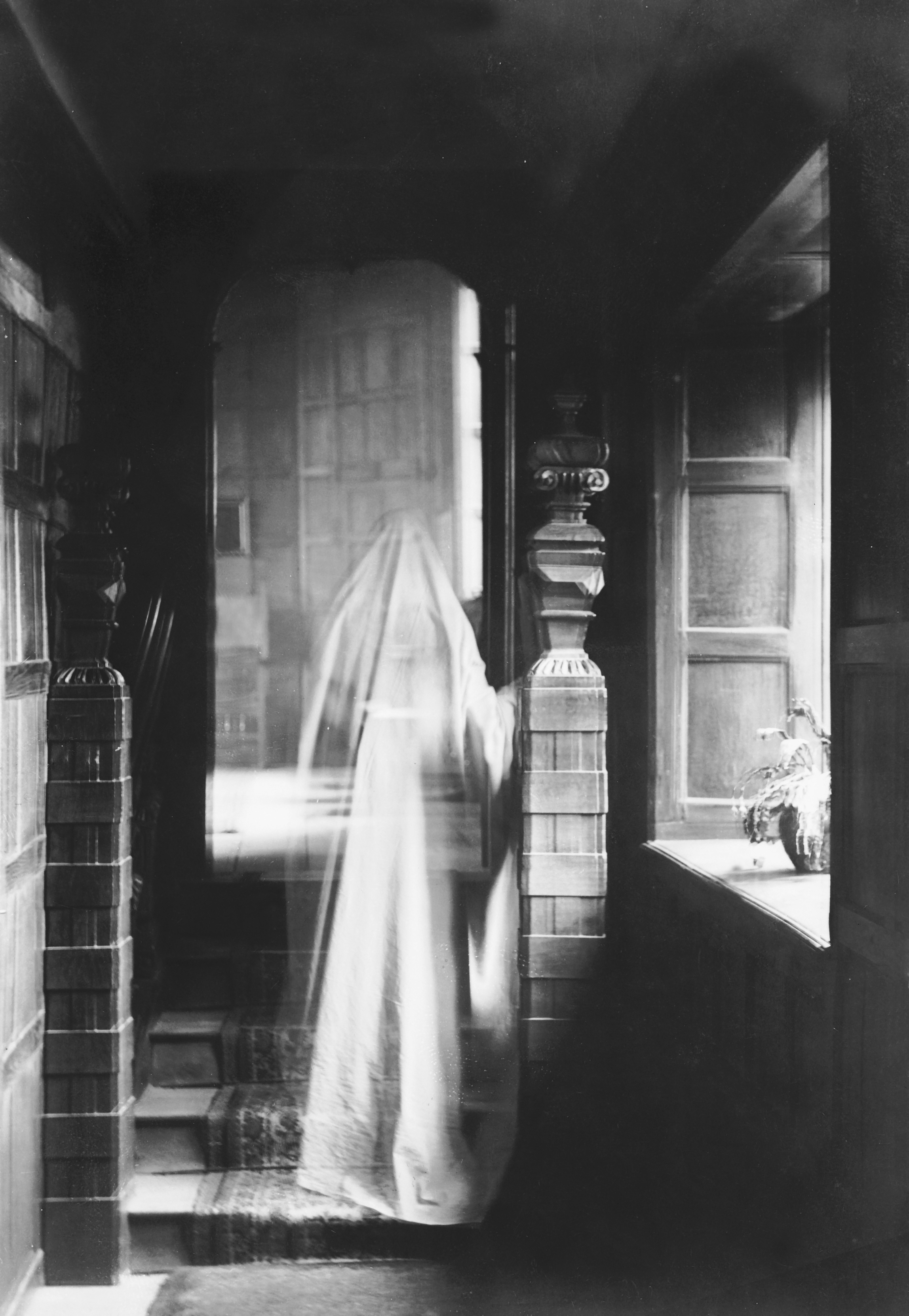While the homes of the era were often dark and gloomy, filled with over-stuffed furniture and cabinets of taxidermied birds and skewered butterflies behind glass, the funeral customs were often highly theatrical and elaborate, shrouded in superstition and belief in the supernatural.
When Prince Albert died in December 1861, Queen Victoria was plunged into a period of intense mourning. She wore black for the remaining forty years of her life and rarely appeared in public.
However, the rules of mourning for most people, at this time, were also rigid, complex and expensive.
The main reason for the strict adherence to mourning rituals was that death was more commonplace and public than it is today. Three out of every twenty babies might die before their first birthday in those days and the elaborate customs provided a sense of stability. There was also the superstitious idea that additional deaths might be avoided by following certain rituals.
Cover The Mirrors
Cover The Mirrors
When someone died, the curtains of the house were closed, clocks became silent and mirrors were covered, because of the belief that the spirit of the deceased might become trapped in the glass.
If you were out walking one day and you happened to run into a funeral procession, it was believed that this may bring you bad luck. If you were able, then it was advisable to turn around and go another way. However, if this was not possible and you had no choice but to continue toward the funeral party, then you could avoid bad luck and a bad future, by holding tightly onto a button. How the button attained this power was never explained.
 |
| John Hislop Undertakers, Brisbane, circa1902 |
The dead mostly stayed at home, until the burial in the Victorian era. For the poor with limited space, this might mean having grandma in the front parlour, or a dead sibling in the same room. But most families, rich and poor, put themselves into debt to properly respect the dead and give them a decent burial.
Black Ostrich Feathers
Black Ostrich Feathers
Coffins might be of rich, expensive timbers and intricately carved. Horses might be adorned with black ostrich feathers and the hearse was often expensive and black as night. Professional mourners (called mutes) might be hired to take part in the funeral procession and deep mourning required the wearing of black clothing and armbands for men, for a prescribed amount of time. A widow was expected to mourn her husband and wear black for at least two years. After this, there was a period of "half mourning", when dresses of grey or lavender could be worn.
%2C_1908.jpg) |
| Mrs Brown is dressed in mourning following the death of her husband, circa 1908 |
Harbingers Of Death
After the funeral and the mourning period had finished, it was still not possible for the Victorians to relax as they believed in so many superstitions and omens about death. For example, if a person smelled roses and there were no roses about, then this was considered a harbinger of death. Yours or someone else close to you. Seeing an owl in the day time was also an omen of death, as was three knocks at the door and no visitor; a dog howling, a vase of red and white flowers together and opening an umbrella inside the house, were also dire.
After the funeral and the mourning period had finished, it was still not possible for the Victorians to relax as they believed in so many superstitions and omens about death. For example, if a person smelled roses and there were no roses about, then this was considered a harbinger of death. Yours or someone else close to you. Seeing an owl in the day time was also an omen of death, as was three knocks at the door and no visitor; a dog howling, a vase of red and white flowers together and opening an umbrella inside the house, were also dire.
People in the Victorian era thought that tying black ribbons onto things could stop death and so black ribbons were tied to doorknobs and added as trimmings on underwear and handkerchiefs and even pets would have be-ribboned tails. If a family had experienced too many deaths, in a short amount of time, they may have insist that guests to their home wear a crepe ribbon, as they stepped through the door....just in case.
De mortuis nihil nisi bonum. "Of the dead, [say] nothing but good"
Books To Read
Rebecca, by Daphne du Maurier. “Last night I dreamt I went to Manderley again.”

